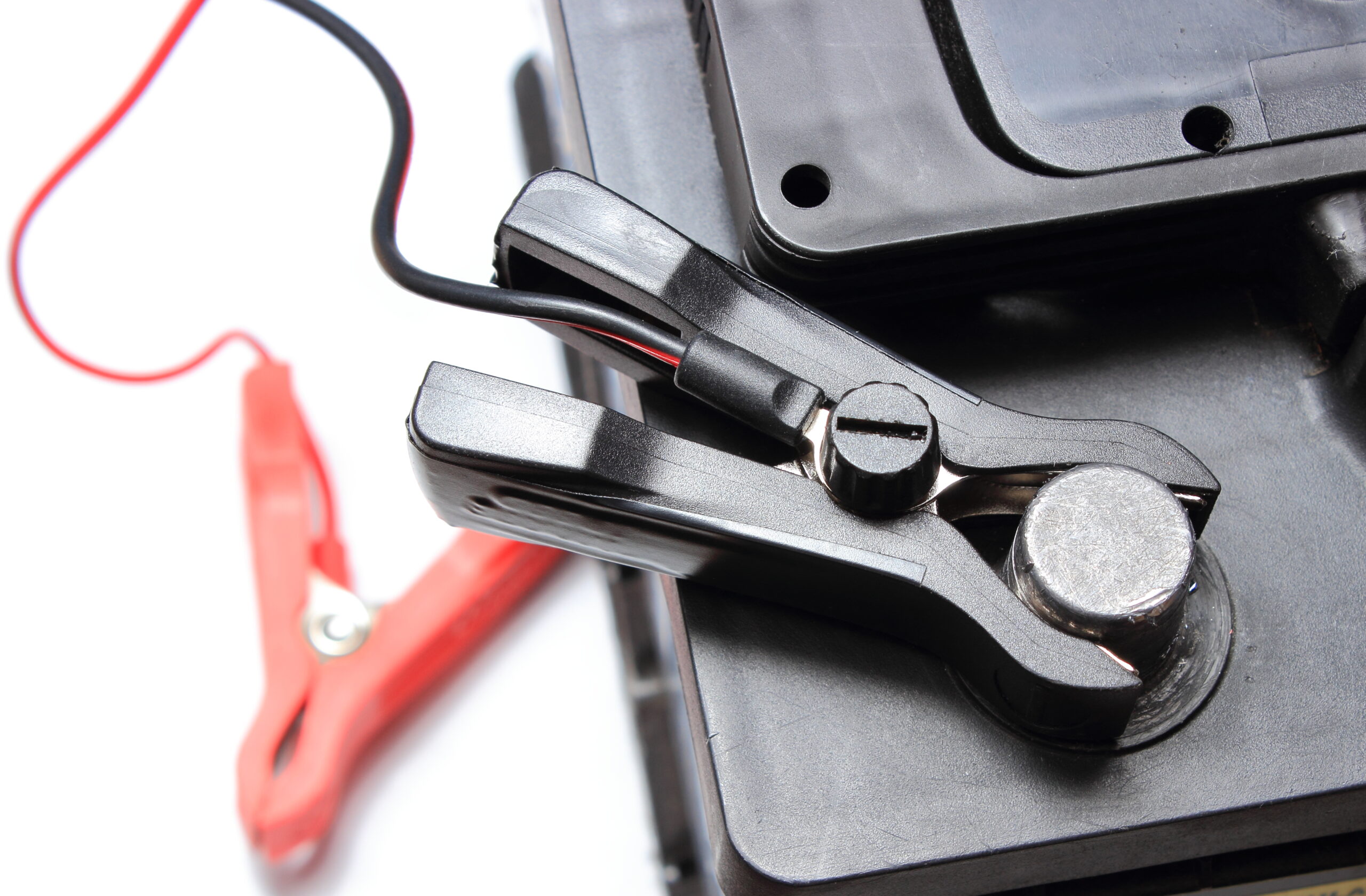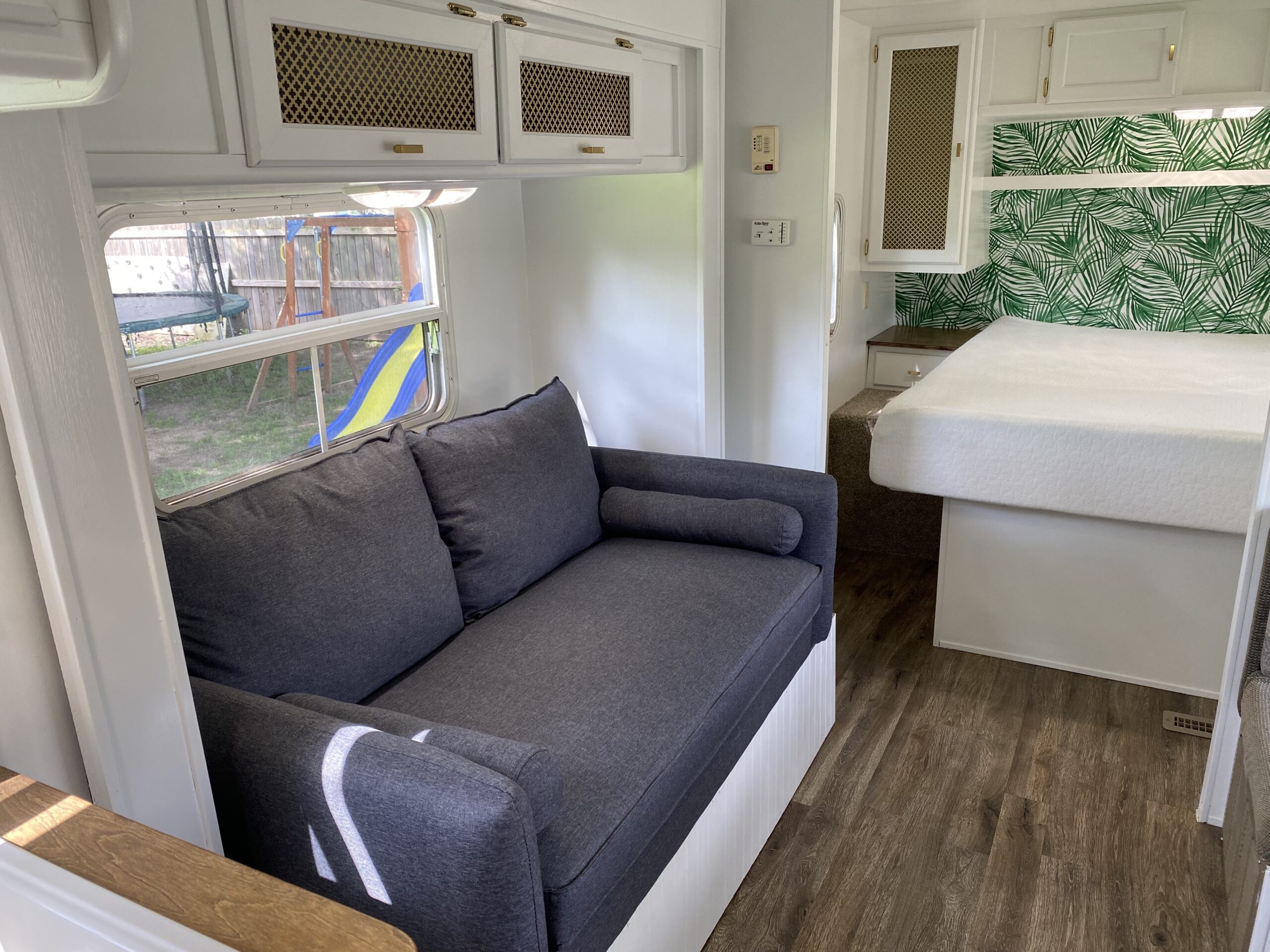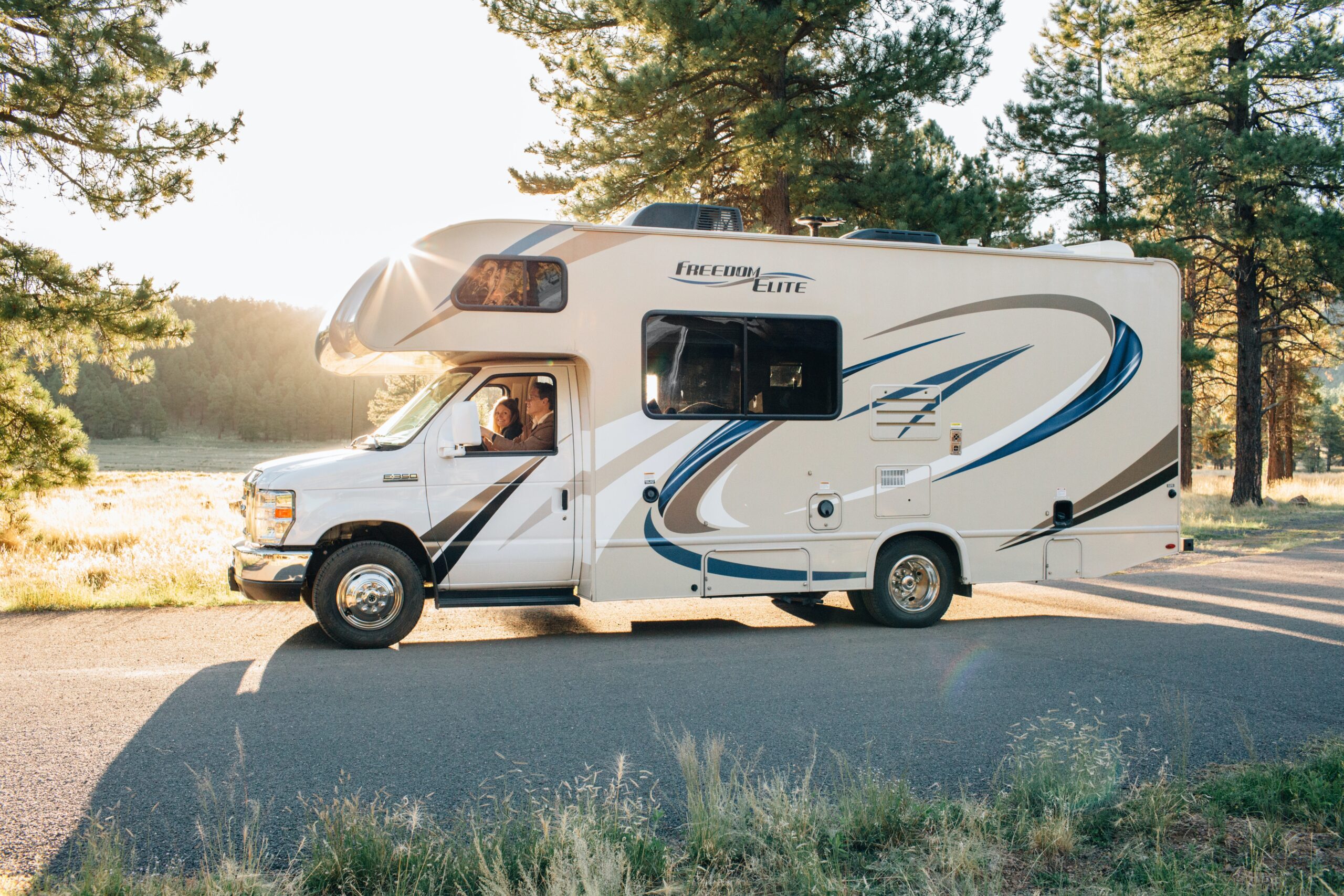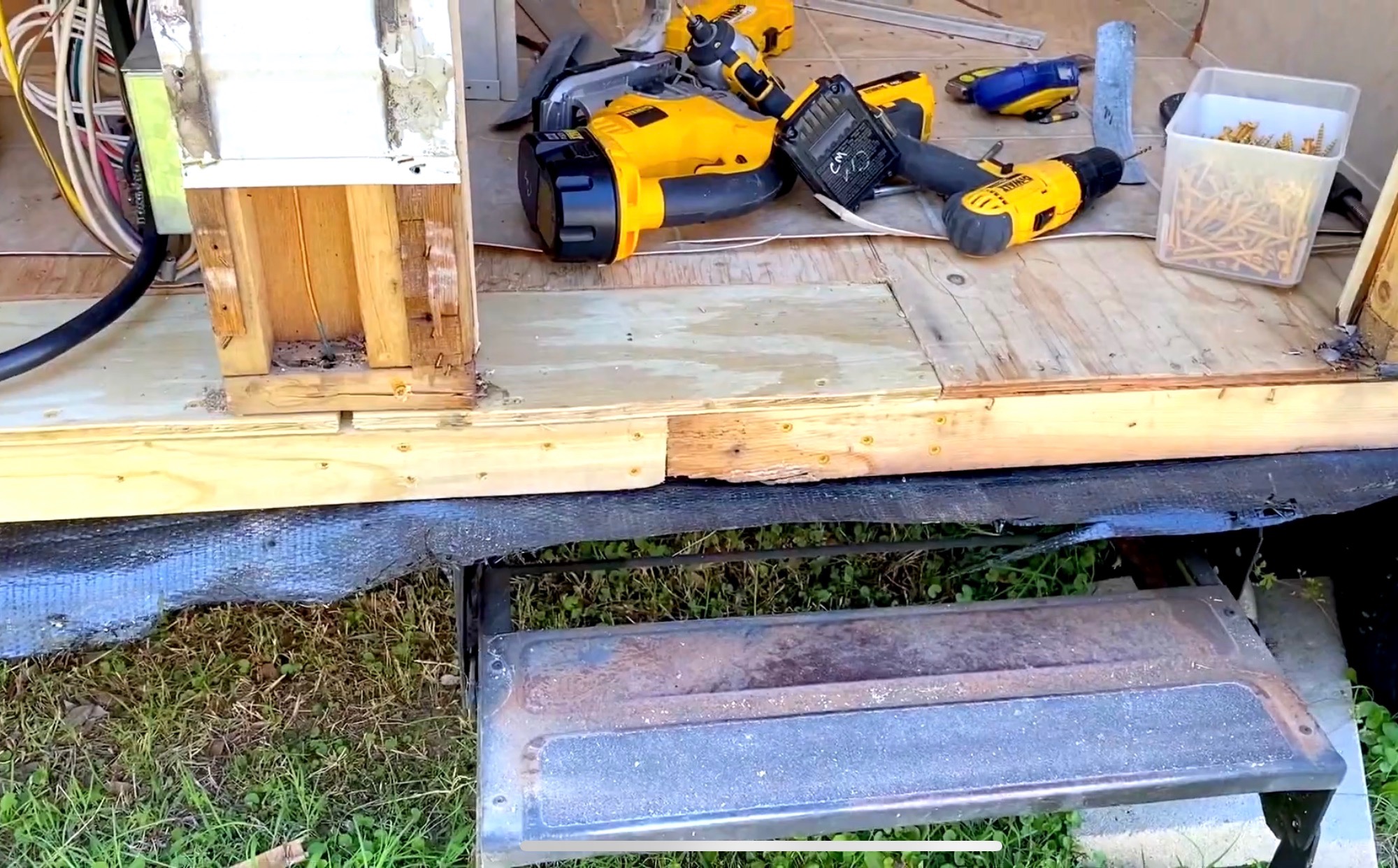It’s summer. The weather is nice. You haul your RV to the campground, expecting to have a great time and your slides won’t move. Your chassis battery is dead. It’s a horrible way to start your trip and it could have been avoided.
How did this happen and what do you do now? Learning how to charge RV batteries is an important part of owning a camper of any type.
Charge your battery and keep it charged. Learning to do this safely, quickly, and prevent it from happening again will make your future camping trips so much more pleasant. We’ll cover all of this and more.
How do I know if my RV battery is charging?

Checking whether your batteries are charging can be done in a few different ways. You don’t have to be an electrician or even overly mechanical to do any of these.
Use a multimeter to check for power. Some campers, such as 5th wheels, might have more than one 12-volt battery, wired in parallel. This means that they are hooked together, one to the next, in a line that creates no more than 12-volts of power but adds more amp hours of power storage.
Using your multimeter on each battery individually will tell you if one of them is dead. You may find that they are all low, or that you’ve got one in the bunch that has no power and that likely points to a bad battery.
If you have a bad battery, it may be time to upgrade. Check out our article on the Best RV Batteries to see what a few options are.
Does my RV battery charge when plugged in?
Yes, when you plug your camper into shore power by plugging into the 30 or 50 amp power source at the campground, your batteries will begin to charge. You should also be able to use the shore power to move your slides out now as well.
You can also plug your RV in at home by using an extension cord. This will charge your batteries before you leave on a trip. While you are plugged in at a campground, your batteries are charging the entire time.
If you’d like to see if they are charging, you can use a multimeter to check the voltage of each battery after they’ve been plugged in for a few hours.
If you don’t have a multimeter, you can also remove the cap on the batteries where you would add distilled water if they are flooded lead batteries. Shine a light into each individual cell as the battery is charging.
You should see tiny bubbles forming from the chemical process happening inside the cell. If there are no bubbles in one of the cells, or two or more, then you have a bad battery that will not take or hold a charge any longer. It needs to be replaced.
Can I leave my RV plugged in all the time?
You can absolutely leave your RV plugged in all the time. You must understand that by doing this, your batteries are constantly going through a charging process and that will cause them to off-gas. They heat up as they charge, causing the distilled water inside them to evaporate.
You should check your batteries every month, minimally. For bumper pull campers, the battery(s) will usually be in a compartment that is vented. They might be on the tongue of the camper, near or on the hitch.
Some smaller units, such as pop-ups may have an exterior compartment on the base of the unit. Large fifth-wheel campers might have a battery compartment hidden under their steps or in the basement area underneath their body.
Once you have found your batteries, open them up and refill them with only distilled water. The lead plate is visible at the bottom of each cell. That must be fully covered in water and you should fill up to very near the top of the cell, but leave a little room for expansion.
Only distilled water should be used to top off the cells because the minerals in other water will cling to this lead plate at the core and render it useless over time. This will also cause the battery to no longer charge.
You do not need to be concerned about adding sulfuric acid to the battery as it doesn’t evaporate off, only the water will in a process referred to as ‘boiling off.’
Should I disconnect my RV battery when plugged in?
This would be counterintuitive. In other words, no. You want your battery to be hooked up while plugged in so that it can be charged through your onboard inverter/power center.
The power center will convert power from your generator to be used for charging your battery as well. Therefore, you can run an onboard generator to charge your battery and power your RV at the same time, as well.
How do I charge my RV battery?
There are at least 5 different ways that you can charge your batteries.
Generator
You can power your batteries by using your onboard generator, or by plugging your RV into a free-standing generator. You can also use a generator at home to run a power cord directly from the generator’s 12-volt charging outlet straight to a single battery and charge it.
Charger

You can plug a battery charger in and run it to your batteries and trickle charge them like this. You should be sure that the charger has a ‘float charge’ setting so that it will not overcharge your batteries, which can also harm them.
Vehicle
You can run battery cables from your car to your chassis batter and let it charge with your vehicle running. You should check with a multimeter to ensure that you are not over-charging your battery.
If this is a concern and you do not have a multimeter, you could start your vehicle, then disconnect your battery and reconnect the RV battery to charge it and your car’s electrical system will not overcharge it.
Solar Panels

There are solar systems designed to hook to the batteries on an RV and charge constantly, even when not in use. By using a charge controller, the system will not overcharge by using an automatic float charge.
Backfeed by Hooking to Shore Power
This simply refers to charging your system by using your RV power cord to plug in somewhere. If you don’t have a plug at home that fits your RV cord, you can purchase an adapter that allows you to connect to a heavy-duty extension cord that plugs into any grounded outlet.
How long does it take to charge RV batteries?
You can expect a batter that is effectively completely dead to take longer. A battery can hold up to 18.5 volts of power on a 12-volt battery.
If you are using a battery charger, you may expect it to take up to an hour on a very dead battery. This is on the highest setting, with an adjustable charger. A trickle charger may take up to 2 days.
Solar panels that were meant for trickle charging will not charge the battery to full for as long as two days. The slow trickle of power will take a long time and even longer if you’ve got anything in the RV using power. This includes a microwave that has a clock on the face, or any lights left on.
The bottom line is that it depends on how dead the battery is and what source you are using to charge it. If you are plugging into a land power source, it could take several hours to a day if you are using the camper at the same time.
How often should I charge my RV battery?
Most people keep their RV battery on a trickle charger all the time with an automatic float so that there is no risk of overcharging. It’s worth the investment to have this charger.
If you choose not to purchase a trickle charger, then get an adapter so you can plug your RV in at home. You can leave it plugged in and check the batteries for water each month, or you can opt to plug it in for two full days each month. Pick a weekend and do this each month and you’ll have a good battery that is ready to go when you are.
On this monthly schedule, before plugging it in, check the water levels and make sure that you’ve got a healthy battery.
Conclusion
Once per month, check your cables, clean the connections and terminals as necessary, ensure that your water levels are right, and monitor your batteries for a sulfur smell. This can be an indication that something is wrong when you smell rotten eggs coming from your batteries.
RV batteries are not cheap and they can go bad very easily if not cared for. They will last much longer if you take the time to check them each month and maintain them properly. Not only will this ensure that you get your money’s worth from them, but it also ensures that you can leave when you are ready for vacation.
There is nothing worse than starting a vacation by having to replace a dead battery. Don’t be caught without the power you need, when you need it. Now is a great time to go check those batteries on that camper of yours.






